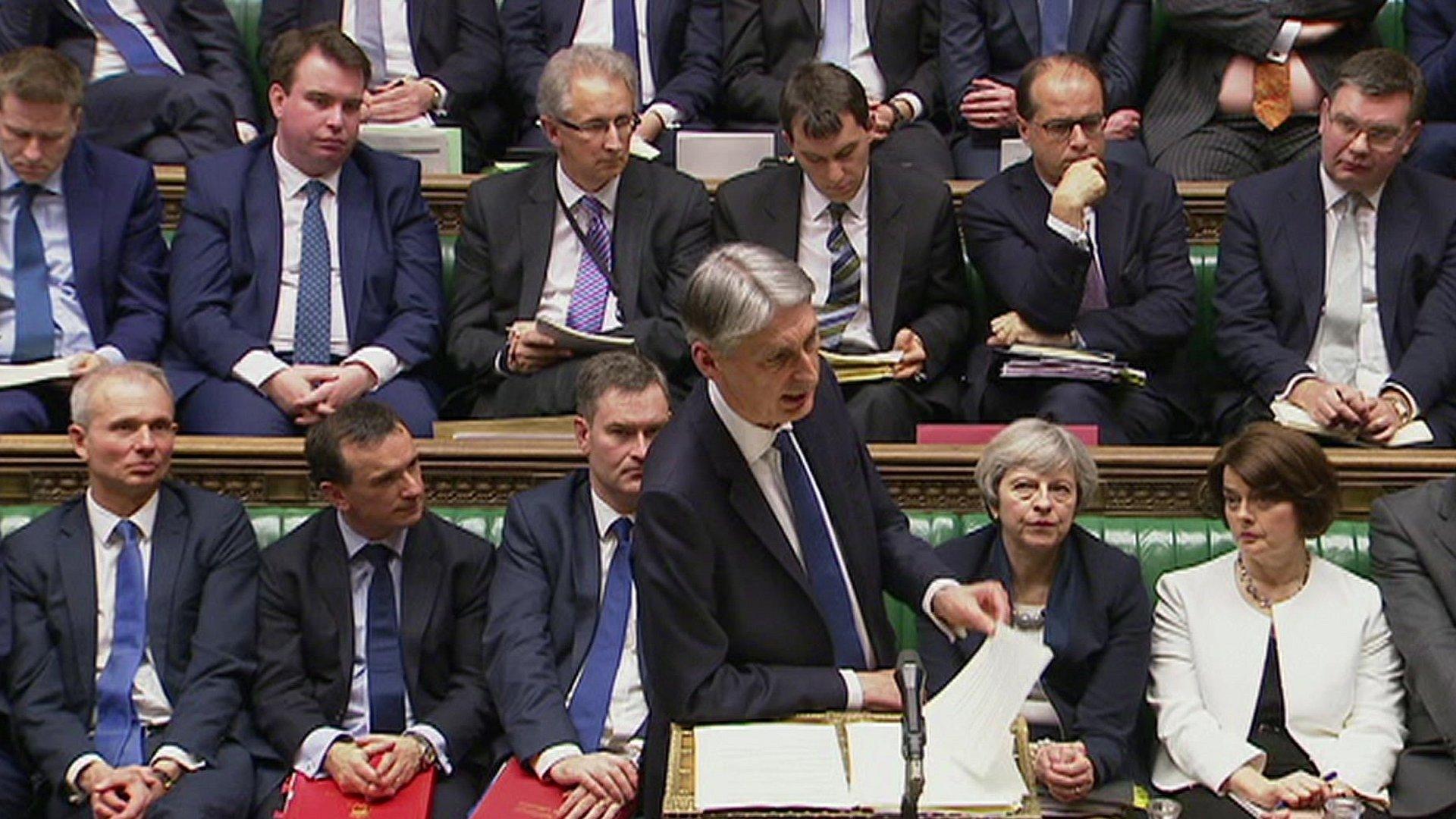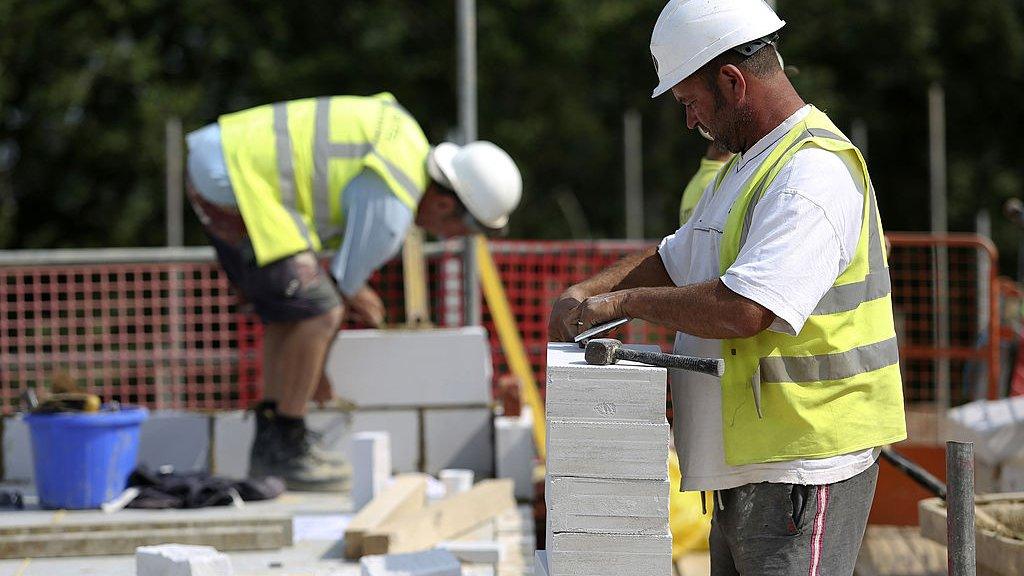Budget 2017: Tax-free dividend allowance slashed
- Published

Businesses owners who pay themselves in dividends on top of a small salary will be hit by a change announced in the Budget.
From April 2018, the total amount of dividends that company directors and shareholders can receive tax-free will fall from £5,000 to £2,000.
The Federation of Small Businesses called the move "a further disincentive for businesses to invest and grow".
The change is the biggest tax raiser in Chancellor Philip Hammond's Budget.
It will net an increasing amount for the Treasury, bringing in £930m in 2021-22.
It means a basic rate tax payer who receives £5,000 in dividends will have to pay an extra £225 tax from April 2018. A higher rate tax payer will pay an extra £975.
'Punitive'
The dividend allowance of £5,000 was announced by the previous chancellor, George Osborne, in 2015.
Mr Hammond said that the cut to £2,000 was meant to "address the unfairness" around the dividend allowance, which he described as "an extremely generous tax break for investors with substantial share portfolios".
He said about half the people affected by this measure were directors and shareholders of private companies.
Many small traders set up businesses by forming a company and paying themselves through dividends as well as a salary.
Chris Bryce, chief executive of IPSE, which represents self-employed workers, said: "The reduction in dividend tax allowance, whether you work as a sole trader or through a limited company [will mean] you will be facing higher bills.
"The chancellor shouldn't forget that growth in self-employment has driven our labour market in recent years and punitive rises in tax will make many people have second thoughts about striking out on their own."


Mike Cherry, national chairman of the Federation of Small Businesses, said: "Many of our members, including those on modest incomes, will now see a significant rise in their tax liabilities.
"FSB is concerned about the increased uncertainty this may cause across the business community. We would now like clarity over how this fits in to the publication of the government's Business Tax Roadmap, which prioritised the importance of creating a stable and certain tax environment for small firms."
Isa protection
Although the chancellor said the measure was mainly designed to reduce incentives for workers to incorporate themselves as companies for tax reasons, it will also impact on savers with investments in stocks and shares worth more than £50,000 outside ISAs.
The Treasury said savers made up around half of the 2.2 million people affected by the change, who will lose an average of around £320 a year each.
The 1.4 million basic-rate taxpayers affected would lose an average £200, compared with £440 for the 725,000 on higher rate and £890 for the 124,000 top rate taxpayers.
Experts said some savers could protect themselves to a degree by using the more generous tax-free Isa allowance, which can be used for stocks and shares.
"Investors should make the most of their ISA and pension allowances, to protect as much of their wealth as possible from the taxman," said Laith Khalaf, senior analyst at Hargreaves Lansdown.
- Published8 March 2017

- Published8 March 2017

- Published8 March 2017
